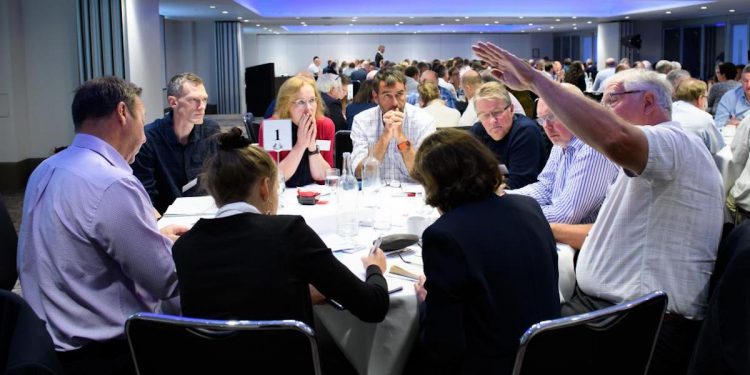Inshore fishermen, industry leaders, policymakers, regulators and researchers all came together in London for the first day of an ambitious conference which considers the future management of the UK’s inshore fisheries.
The two-day Future of Our Inshore Fisheries conference is part of a collaborative project focused on ensuring that both the marine environment and coastal communities remain sustainable and able to thrive in the future. The first stage of this project aims to establish blueprint for the future collaborative management of UK’s inshore fisheries.
‘The examples of fisheries management from around the world presented today emphasise what is possible for inshore fisheries across the UK, both in terms of sustainability and economic return. The steering group has brought together industry, government and others to work together on this ambitious project,’ commented Alan McCulla, Chief Executive of the Anglo North Irish Fish Producers Organisation (ANIFPO) and a member of the Future of Our Inshore Fisheries project steering group.
‘We have a unique opportunity to make this work, and the continued support and effort from all involved is essential if we are to achieve genuinely collaborative management of our inshore fisheries in the future.’
The line-up of speakers includes Wes Erikson (a fourth generation fishermen from British Columbia who has been active in the fisheries advisory process for more than 20 years), Dr Ralph Townsend (Director of the Institute of Social and Economic Research, University of Alaska), Professor Linda Nostbakken (Professor of Resource Economics, Norwegian School of Economics), Robert Clark (Chief Executive Officer, Southern Inshore Fisheries and Conservation Authority) and Eddie Allison (Professor of Marine Affairs, University of Washington)
The speakers present examples of fisheries management solutions and share best practice from Canada, USA, Norway, Denmark and New Zealand. The presentations are followed by discussion sessions where the attendees consider these ideas and approaches and their relevance to the UK, with the active fishermen in particular bringing their direct experience and insight to these discussions.
Representatives from environmental groups and the recreational fishing sector will also take part in the event.
‘We tend look at fisheries management problems locally, but when you meet fishermen from across the UK you find that the problems we face are often quite similar. There is value for fishermen in attending events like this one to get a wider overview and to listen to new ideas. I hope that after the conference fisheries managers will also have a better appreciation of the issues fishermen are facing,’ said Alasdair Hughson, fisherman and director of Keltic Seafare in Dingwall.
‘Fishermen have never been in the room discussing these things before, and there is a lot of confusion about how we got to be where we are and what the thinking behind the decisions has been,’ said Aubrey Banfield, who fishes for crab, lobster and cuttlefish off the South Coast of England.
‘Just talking to fishermen about how they see things can change perceptions immensely. We need to look forward and end the approach of a ‘sticking plaster’ here and there. There needs to be full focus on what we can do to fix everything in fisheries management and licensing as a whole and come up with a solution that benefits all.’
Organisations from across the seafood sector have provided funding to ensure that fishermen are able to take time away from fishing to be part of ensuring a sustainable future for their industry.
More than 50 bursaries have been provided by Seafarers, Trinity House, Coop, M&S, UK, Macduff, Seachill, Youngs and Seafish’s regional advisory committees.









